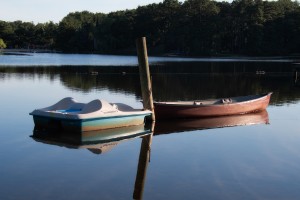 I imagine most of you have heard the phrase ‘ A Delicate Balance’, Our SLA environment was designed by engineers and environmental scientists, some of whom were residents: The focus, to create a plan to protect our Treasure. Our Lakes are not only a major Investment but our opportunity to socially enjoy each other while also enjoying water activities. The Covenants and Bylaws direct us how to maintain this delicate balance amidst suburbia!
I imagine most of you have heard the phrase ‘ A Delicate Balance’, Our SLA environment was designed by engineers and environmental scientists, some of whom were residents: The focus, to create a plan to protect our Treasure. Our Lakes are not only a major Investment but our opportunity to socially enjoy each other while also enjoying water activities. The Covenants and Bylaws direct us how to maintain this delicate balance amidst suburbia!
The original goal was to maintain as much porous surface so that water could percolate in order to be filtered prior to reaching the waterways, the more stone driveways, indigenous plants, undergrowth and trees the better. Even though our overall look has changed since inception, natural settings are still the Hallmark of our neighborhood. Keeping grass as an accent helps to maintain that balance without adversely effecting lakes.
Runoff from the streets, high phosphorous fertilizers, chemicals to control weeds
and insects all have to be balanced in order for the lakes to be kept healthy.
The SLA Environmental Committee would like to provide you with timely tips for achieving the ‘Delicate Balance’ needed to maintain our Healthy Lakes. Please log into the laker.com
The Benefits for Growing an Eco-Friendly Organically Fed Lawn:
1. Minimizes the negative impact to our waterways and wildlife
2. Improves and restores the soil by fostering the production of beneficial organisms
3. Safer for children and pets
4. Uses less water
This Can Be Achieved:
1. Minimize Chemicals for treating weeds and insects
2. Test lawn – may not need fertilizer or may need lime to improve absorption of fertilizer
3. Use organic fertilizer with “slow release” nitrogen and low amounts of phosphorous/potash
4. If using grass, choose the best type for conditions; dry/wet, sandy/clay
5. Limit the amount of grass to 24% of entire property and maintain a buffer from waterways
6. Minimize removal of indigenous species, trees, shrubs and underbrush
7. Utilize SLA guidelines
8. Utilize web sites like Rutgers Cooperative Extension https://www.njaes.rutgers.edu/fs684
Soils with poor structure will be improved significantly by adding compost or humus.
Core aeration plus compost helps established lawns. Here is a good reference:
https://www.lawn-care-academy.com/organic-lawn-fertilizer.html
Below are fertilizer facts taken from https://www.plantcaretoday.com
Commercial fertilizers use up the humus in the soil. (The humus contains the beneficial microorganisms that produce a healthy grass. Commercial fertilizers are short lasting and leave a residue in the soil that cause acidic or alkali reaction that deplete the natural organisms. Commercial fertilizers are typically high in nitrogen and phosphate which can leach through the soil into our waterways causing algae blooms and poisoning fish and wildlife. Organic is generally much slower in nitrogen/phosphate/potash, (relying on soil microorganisms to convert it to lawn nutrients. They stay with the soil longer without as much leaching into our waterways.
Three lawn care companies that we have talked to and sound good:
NJCompostMan@gmail.com www.thecompostman.com This company is near Lambertville we would need 25-30 homes signed up. If interested call 609-955-0924
https://www.jtorganiclawn.com/organic-lawn-care/
https://www.greenlawnfertilizing.com/
New!
The Basic Facts About Plant Nutrients and Fertilizing
https://youtu.be/WJD-TFX2hjc
